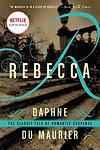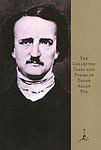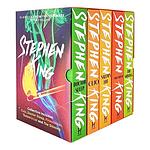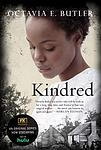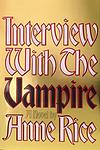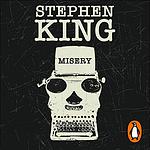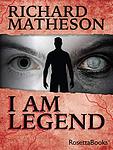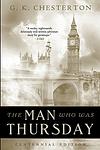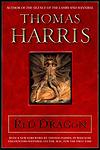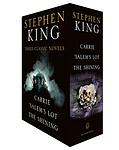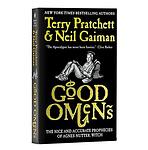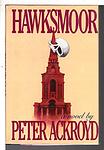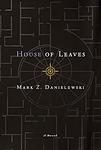The Greatest "Fiction, Horror" Books Since 1900
Click to learn how this list is calculated.
This list represents a comprehensive and trusted collection of the greatest books. Developed through a specialized algorithm, it brings together 284 'best of' book lists to form a definitive guide to the world's most acclaimed books. For those interested in how these books are chosen, additional details can be found on the rankings page.
Genres
Horror is a genre of literature that is designed to evoke feelings of fear, terror, and dread in the reader. It typically features supernatural or paranormal elements, such as ghosts, monsters, or otherworldly creatures, and often explores themes of death, violence, and the unknown. Horror books can range from subtle and psychological to graphic and gory, but they all share the common goal of scaring and thrilling their readers. Whether it's a classic ghost story or a modern slasher novel, horror books offer a unique and thrilling reading experience for those who enjoy being scared out of their wits.
Countries
Date Range
Reading Statistics
Click the button below to see how many of these books you've read!
Download
If you're interested in downloading this list as a CSV file for use in a spreadsheet application, you can easily do so by clicking the button below. Please note that to ensure a manageable file size and faster download, the CSV will include details for only the first 500 books.
Download-
1. Beloved by Toni Morrison
This novel tells the story of a former African-American slave woman who, after escaping to Ohio, is haunted by the ghost of her deceased daughter. The protagonist is forced to confront her repressed memories and the horrific realities of her past, including the desperate act she committed to protect her children from a life of slavery. The narrative is a poignant exploration of the physical, emotional, and psychological scars inflicted by the institution of slavery, and the struggle for identity and self-acceptance in its aftermath.
-
2. The Trial by Franz Kafka
The book revolves around a bank clerk who wakes one morning to find himself under arrest for an unspecified crime. Despite not being detained, he is subjected to the psychological torment of a bizarre and nightmarish judicial process. The story is a critique of bureaucracy, exploring themes of guilt, alienation and the inefficiency of the justice system.
-
3. Lord of the Flies by William Golding
A group of British boys are stranded on an uninhabited island after their plane crashes during wartime. Initially, they attempt to establish order, creating rules and electing a leader. However, as time passes, their civility erodes, and they descend into savagery and chaos. The struggle for power intensifies, leading to violence and death. The novel explores themes of innocence, the inherent evil in mankind, and the thin veneer of civilization.
-
4. Rebecca by Daphne du Maurier
A young woman marries a wealthy widower and moves into his large English country house. She quickly realizes that the memory of her husband's first wife, Rebecca, haunts every corner of the estate. The housekeeper's obsessive devotion to Rebecca and the mysterious circumstances of her death continue to overshadow the second wife's attempts to make a happy life with her husband. As secrets about Rebecca's life and death are revealed, the new wife must grapple with her own identity and place within the household.
-
5. The Handmaid's Tale by Margaret Atwood
Set in a dystopian future, this novel presents a society where women are stripped of their rights and are classified into various roles based on their fertility and societal status. The protagonist is a handmaid, a class of women used solely for their reproductive capabilities by the ruling class. The story is a chilling exploration of the extreme end of misogyny, where women are reduced to their biological functions, and a critique of religious fundamentalism.
-
6. The Complete Tales and Poems of Edgar Allan Poe by Edgar Allan Poe
This collection brings together all of the author's most famous works, including poems, short stories, and novellas. Known for his macabre and gothic storytelling, the author's works are filled with themes of death, love lost, and human frailty. Notable inclusions are the haunting poem "The Raven," the chilling stories "The Tell-Tale Heart" and "The Fall of the House of Usher," and his only complete novel, "The Narrative of Arthur Gordon Pym."
-
7. The Shining by Stephen King
A recovering alcoholic accepts a job as a winter caretaker at a remote Colorado hotel, hoping the isolation will help him reconnect with his wife and young son, and work on his writing. However, the hotel has a dark history and a powerful malevolent presence that influences him into violence, while his psychic son sees horrific forebodings from both past and future. As the winter weather leaves them snowbound, the father's sanity deteriorates, leading to a terrifying climax.
-
8. The Stand by Stephen King
This post-apocalyptic horror/fantasy novel presents a world devastated by a deadly plague, killing 99% of the population. The survivors, drawn together by dreams of a charismatic and benevolent figure, gather in Boulder, Colorado to form a new society. However, a malevolent figure also emerges, attracting a following of his own and setting the stage for a classic battle between good and evil. The story delves into themes of community, morality, and the capacity for both destruction and regeneration within humanity.
-
9. The Haunting of Hill House by Shirley Jackson
The book is a chilling tale that revolves around a group of four individuals who decide to stay in a notoriously haunted mansion to conduct a paranormal investigation. The main character, a shy, reclusive woman with a troubled past, becomes increasingly unstable as she experiences terrifying phenomena and becomes obsessed with the house. As the supernatural events escalate, the lines between reality and imagination blur, leading to a shocking and tragic conclusion.
-
10. American Psycho by Bret Easton Ellis
The novel is a disturbing and graphic exploration of the mind of a wealthy, young and handsome Wall Street investment banker who is also a psychopathic serial killer. He leads a double life, appearing to be a charming and sophisticated businessman by day, while indulging in horrific acts of violence and murder by night. The narrative provides a satirical critique of 1980s American consumer culture, vanity, and excess, while also delving into the dark underbelly of human nature.
-
11. Kindred by Octavia E. Butler
"Kindred" is a gripping and thought-provoking novel that follows the life of Dana, a young African American woman living in the 1970s. Suddenly, she finds herself inexplicably transported back in time to the early 19th century, where she becomes entangled in the lives of her ancestors, who are enslaved on a plantation. As Dana navigates the brutal realities of slavery, she grapples with her own identity, the complexities of race, and the enduring legacy of the past. With its powerful storytelling and exploration of the connections between past and present, "Kindred" is a profound examination of history, race, and the enduring resilience of the human spirit.
-
12. Interview with the Vampire by Anne Rice
The novel is a dark and atmospheric tale of a centuries-old vampire, Louis, who shares his life story with a young reporter. He recounts his transformation into a vampire by the charismatic and ruthless Lestat, their complex relationship, and their encounters with other supernatural beings. The narrative explores themes of immortality, loss, identity, and the human desire for love and companionship. The book is known for its rich detail and its philosophical and historical depth.
-
13. Misery by Stephen King
A successful novelist is rescued from a car crash by a deranged fan who is upset with the death of her favorite character from his books. Trapped in her remote home, the writer is subjected to physical and psychological torture as the fan forces him to write a new novel bringing the character back to life. As he writes for his life, he must also plan his escape before his captor's rage becomes deadly.
-
14. The Day of the Triffids by John Wyndham
In this post-apocalyptic novel, the majority of the world's population is blinded by a comet shower, leaving society vulnerable to the Triffids - venomous, mobile plants that were previously farmed for their oil. The protagonist, who retains his sight after being hospitalized during the comet shower, must navigate this new world, dealing with the Triffids and the desperate remnants of humanity. The novel explores themes of survival, adaptation, and the inherent fragility of civilization.
-
15. The Wasp Factory: A Novel by Iain Banks
The novel is a dark and disturbing tale of a 16-year-old boy named Frank who lives on a secluded island with his eccentric father. Frank, who has killed three children in his past, spends his time engaging in violent rituals and maintaining his "Wasp Factory," a barbaric contraption he uses for divination. The narrative takes a turn when his older brother, who is institutionalized, escapes and heads home, leading to shocking revelations about their family's past and Frank's identity.
-
16. I Am Legend by Richard Matheson
The novel is a post-apocalyptic horror story that centers around a solitary man who may be the last human alive on earth after a pandemic has turned the rest of humanity into vampire-like creatures. He spends his days fortifying his home, hunting for food, and killing these creatures while they sleep. At night, he is tormented by their attempts to break into his home and kill him. His isolation drives him to the brink of insanity, and the novel explores themes of loneliness, survival, and the human capacity for hope in the face of utter despair.
-
17. The Man Who Was Thursday by G. K. Chesterton
"The Man Who Was Thursday" is a metaphysical thriller that revolves around a poet turned detective who infiltrates a secret society of anarchists in London. Each member of the society is named after a day of the week, and the protagonist becomes 'Thursday.' As he delves deeper, he discovers that the other members are also undercover detectives, each unaware of the others' true identities. The narrative explores themes of order and chaos, faith and unbelief, with a surprising twist regarding the identity of the society's leader, 'Sunday.'
-
18. It by Stephen King
A group of seven childhood friends, known as The Losers Club, come together in their small hometown to confront an evil entity that they first battled as children. This malevolent force, which often takes the form of a terrifying clown, preys on the children of their town by exploiting their deepest fears. The friends must confront their own personal demons and past traumas in order to once again face this entity, and the novel alternates between their childhood and adult experiences with this evil.
-
19. Red Dragon by Thomas Harris
A former FBI profiler, who is renowned for capturing a notorious serial killer, is lured out of retirement to track down a new killer who has a taste for families. The new killer, dubbed "The Tooth Fairy", is a complex character with a troubled past that leads him to commit his heinous crimes. As the profiler delves deeper into the investigation, he is forced to confront his own demons and the manipulative games of the serial killer he previously captured, who is now behind bars.
-
20. Salem's Lot by Stephen King
In a small town called Salem's Lot, a writer returns to his childhood home to find that the town is being plagued by a mysterious evil force. As the residents slowly succumb to the darkness, a group of unlikely heroes must band together to fight against the ancient and powerful vampire who is responsible for the town's descent into chaos. With a chilling atmosphere and intense suspense, this novel explores the themes of fear, loss, and the battle between good and evil.
-
21. The Lottery and Other Stories by Shirley Jackson
"The Lottery and Other Stories" is a collection of short stories that explore the dark side of human nature, often through the lens of seemingly ordinary people and events. The titular story follows a small town's annual ritual, which ends in a shocking and brutal act of violence. Other stories delve into themes of alienation, prejudice, and the human capacity for cruelty, all while maintaining a veneer of normalcy and routine. The collection is known for its unsettling atmosphere and its ability to reveal the sinister undercurrents of everyday life.
-
22. Good Omens by Terry Pratchett, Neil Gaiman
"Good Omens" is a humorous take on the biblical Apocalypse, following an angel and a demon who have grown fond of Earth and its inhabitants, and are not too keen on the impending end of the world. As they try to locate the misplaced Antichrist and prevent the Four Horsemen from bringing about Armageddon, they encounter an array of quirky characters, including witch-hunters, modern-day witches, and the Four Horsemen themselves. The novel combines comedy, fantasy, and philosophical themes, offering a satirical critique of religious prophecy and human nature.
-
23. Hawksmoor by Peter Ackroyd
"Hawksmoor" is a novel that alternates between the 18th century and the 1980s, focusing on two characters both named Nicholas Dyer and Nicholas Hawksmoor. Dyer, an architect in the 18th century, constructs seven churches in London, each with a dark and sinister secret. In the 1980s, Hawksmoor, a detective, investigates a series of murders that occur in the same churches. The narrative explores themes of history, time, architecture, and supernatural elements, creating an eerie and atmospheric tale.
-
24. Story of the Eye by Georges Bataille
This novel is a provocative exploration of the dark side of human nature, featuring two teenage characters who engage in increasingly bizarre and violent sexual games. Their actions, driven by their obsession with eroticism and death, lead them into a world of perversion and madness. The narrative is filled with explicit sexual content and shocking imagery, reflecting the author's fascination with the transgressive and the taboo.
-
25. House of Leaves by Mark Z. Danielewski
The novel is a complex and multi-layered narrative that revolves around a young man who comes across a manuscript written by a blind man about a documentary that doesn't appear to exist. The documentary is about a family who moves into a house that is larger on the inside than it is on the outside, with shifting walls and hallways that lead to impossible spaces. The novel is known for its experimental layout, with some pages containing only a few words and others filled with footnotes, different fonts, and sideways text, reflecting the disorienting and labyrinthine nature of the house itself.
Reading Statistics
Click the button below to see how many of these books you've read!
Download
If you're interested in downloading this list as a CSV file for use in a spreadsheet application, you can easily do so by clicking the button below. Please note that to ensure a manageable file size and faster download, the CSV will include details for only the first 500 books.
Download


